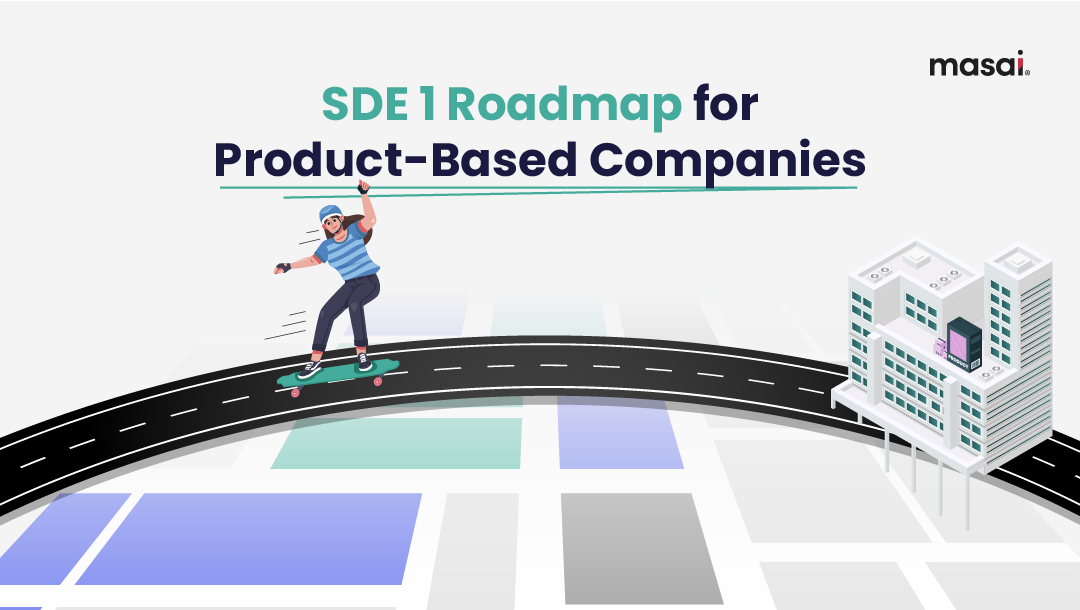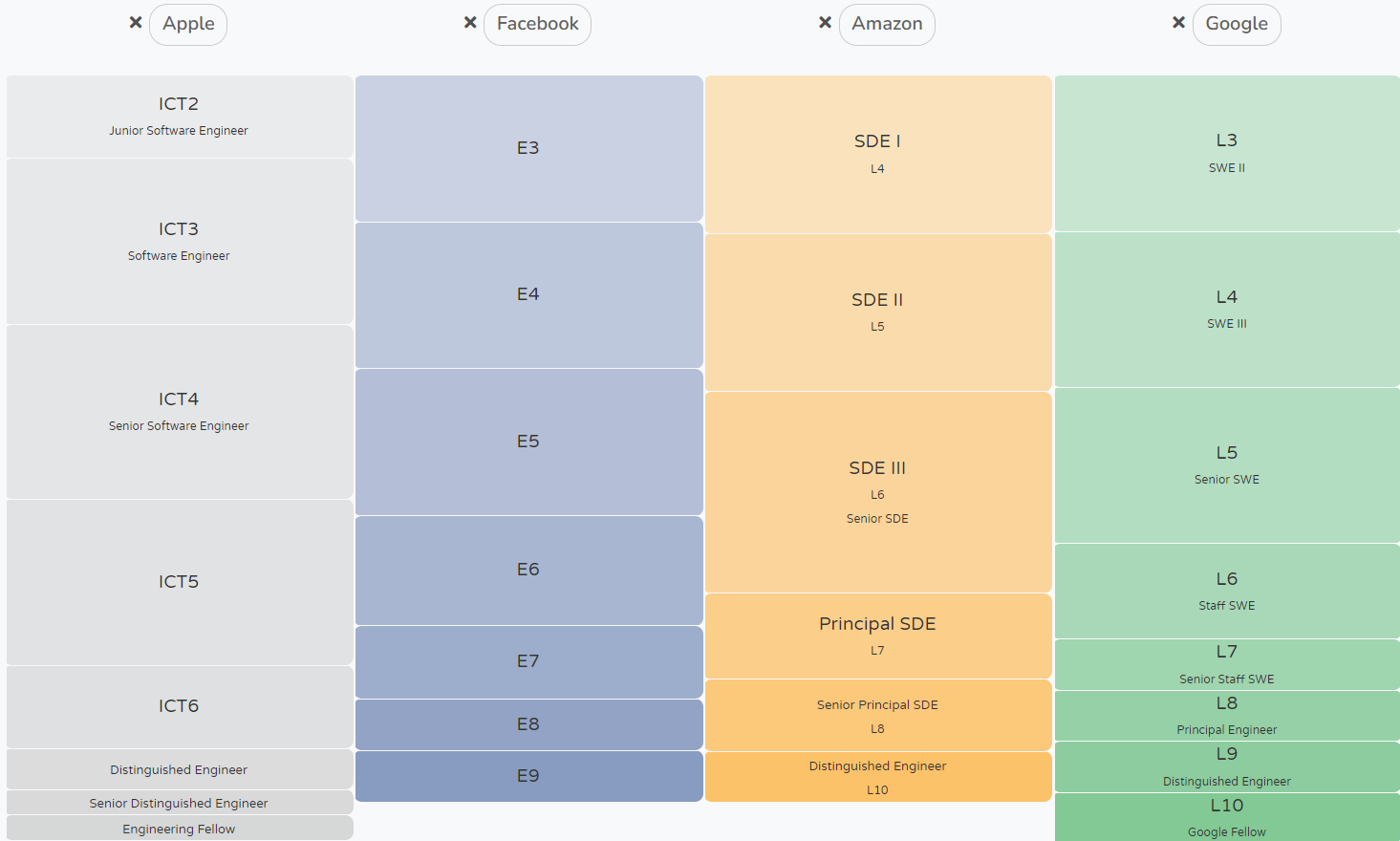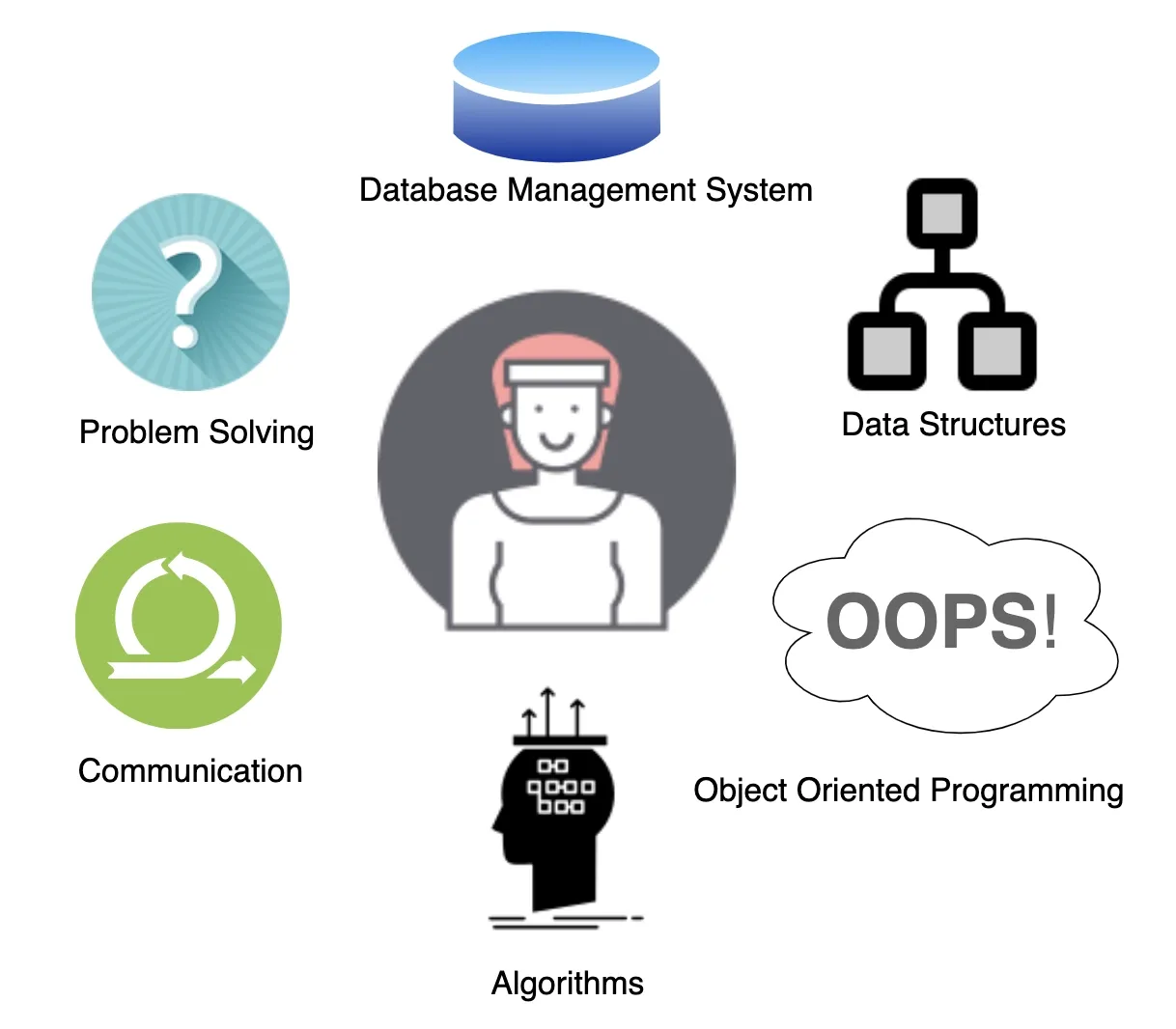Cracking an SDE-1 Role in Product-Based Companies
This step-by-step guide will help you prepare for an SDE-1 or an equivalent software engineering role at a product-based company.

You want to dive into the exciting world of tech, eyeing an SDE-1 position at those big-name product-based companies. You're not alone, it's a dream that stirs up many minds, but the path seems tricky, almost like a maze without a map. Fret not, we've got you covered.
This guide is your trusty GPS, designed to navigate you through this adventure. It's more than just a conventional SDE prep plan; it's a ticket to explore the realms of full-stack and back-end development too! Front-end enthusiasts, you might have to dig a bit deeper into your domain, but don't worry, we've got tips for you as well.
So, ready to turn the dream into reality? First, let's understand what exactly does the job encompass?
What is an SDE-1? What are their Roles and Responsibilities?
An SDE-1, short for Software Development Engineer-1, is typically a beginner-level programmer at a product-based company. In this role, you're the driving force that turns cool ideas into practical software. Your main job is to write neat and workable code in languages like Python, Java, or C++, among others. You need a strong foundation in the basics of computer science and a good handle on data structures and algorithms.
Beyond just coding, you're involved in the entire journey of software creation, from understanding what needs to be built, to designing and coding it, and to fixing any issues. Also, you're a team player, working with other coders, project managers, testers, and even clients at times.
Why Product-Based Companies?
Product-based companies like Google or Amazon are popular among developers, and for good reasons:
- They focus on building their own products that are used worldwide, letting you work on exciting, big-impact projects.
- You usually get to be involved in the whole product journey, from the initial idea to development, launch, and upkeep. This can make your work more satisfying as you see how your contributions matter.
- Plus, these companies love to invest in research and the latest tech, so you're always learning.
- The work environment tends to be more dynamic and you're often pushed to come up with creative solutions.
On top of that, the pay and benefits are typically better than at service-based companies. Now different product-based companies might address software engineering roles differently. But their roles and responsibilities stay more or less the same.
Here’s an informative chart representing the different ways software engineering levels are addressed in the tech giants:

Now, let's dive into how you can prepare for an SDE-1 or an equivalent role at a product-based company.
Key Concepts and Terminologies
Before starting, get to the root of essential programming concepts such as computer architecture and fundamentals, DSA (Data Structures and Algorithms), OOP (Object-Oriented Programming), DBMS (Database Management Systems), and OS (Operating Systems).

And by that, we don’t just mean the abbreviations but actually visualising all of these concepts and understanding where they’re placed in the bigger scheme of things. You’ll frequently come across these concepts throughout your preparation journey.
Building Foundations (First 6 Months):
Start by mastering coding in any language of your choice be it Python or JavaScript. Once you're comfortable with high-level solutions and calculating the time and space complexity, you can advance to other languages.
Simultaneously, work on building a strong understanding of Data Structures and Algorithms (DSA). Key data structures to master include:
Familiarize yourself with common algorithm types such as String Manipulation, Two Pointers, Searching, Sorting, Backtracking, Bit Manipulation, and Dynamic Programming.
Next, move on to learning Object-Oriented Programming (OOP) and gain a thorough understanding of common OOP features (Abstraction, Encapsulation, Inheritance, Polymorphism).
Finally, build a strong foundation of other core CS subjects like DBMS, OS, Networking, etc.
Understanding the concepts deeply instead of mere memorization will help you in the long run. Keep notes of all essential concepts for future reference and revision.
Effective Learning Practices
Here are a few powerful practices to keep in mind:
Avoid Tutorial Dependency
Avoid the trap of tutorial dependency and strive to balance your learning between absorbing tutorial content and applying the knowledge practically. Remember, the measure of your learning is not the number of tutorials consumed, but the depth of understanding and implementation.
Don’t glance at solutions
Avoid hastily jumping to solutions to previous interview questions without thoroughly engaging your problem-solving skills. That way you’re simply programming your mind to rely on others’ solutions and it can be really costly in an interview setting.
While practicing, make it a point to avoid glancing at solutions until you have spent a good amount of effort trying to solve the problem yourself. If the problem pertains to a new topic, first grasp that topic thoroughly before revisiting the problem.
Emphasis on Clean, Readable Code
Cultivate the habit of writing clean, modular code using meaningful variable names. This skill is critical for both problem-solving/data structure rounds and machine coding rounds.
Comprehensive Understanding of Your Projects
Whether they're self-initiated projects or part of your job/internship/college curriculum, you must have complete knowledge about them. Be prepared to map experiences from each of your projects to different types of behavioral questions like the most challenging aspect, key learnings, hardest bug faced, and more.
If you're a college student and want to prep yourself for top roles in the tech industry, check out the Career Accelerator Program.
Interview Preparation (~Next 6 Months):
This phase of your journey, leading up to six months before your interviews, is about honing your skills and consolidating your knowledge for the challenges ahead. It's about solving complex problems, applying your knowledge to practical situations, and developing good coding practices. Here's a more detailed breakdown:
Problem-Solving and Concept Application:
During this period, you should work on solving problems that utilize data structures, algorithms, and other computer science concepts you've studied. These are often the crux of tech interviews at product-based companies.
- Use online platforms such as LeetCode, HackerRank, or CodeSignal to practice a wide variety of problems. These platforms also offer problems grouped by their concept, which can be useful for focused learning.
- Aim to cover all topics extensively. Start from basic problems and gradually move to more complex ones.
- While solving problems, pay attention not just to finding a solution, but to finding the most efficient solution. Many interviews focus on optimization and your ability to use the right data structures or algorithms to improve performance.
- Pair programming or participating in coding boot camps or competitions can also offer different types of problems and scenarios, increasing your adaptability.
Developing Good Coding Practices:
Writing code that works is just the first step. Writing code that is clean, readable, and maintainable is an equally important skill. Here are a few key principles to follow:
- DRY (Don't Repeat Yourself)- A reminder to keep your code tidy by not having the same thing written in more than one place.
- KISS (Keep It Simple, Stupid)- A nudge to keep your code as uncomplicated as possible - simple is beautiful!
- YAGNI (You Ain't Gonna Need It)- An advice to not add features to your code just because you think you might need them in the future - add them when you need them.
- SOLID Principles- A set of five rules that help us create code that is easy to understand, change, and correct. It's like the golden rules of programming.
(Know more about these principles in detail here)
It's important to understand that these principles are not rules, but guidelines to help you write better code. They are widely accepted in the industry and following them can also demonstrate to interviewers that you care about the quality of your code, not just its functionality.
Interview Readiness (~Last 2 Months):
In this final stretch, your focus should be on the following:
- Tackle Weak Spots: Devote time to topics you find challenging and strengthen your foundation in them through additional study and problem-solving.
- Project Preparation: Go over your projects thoroughly. Be prepared to discuss them in detail during the interviews, including the challenges faced, your solutions, and the impact your work had.
- Build Confidence: Practice problems across all topics to ensure you feel comfortable and confident in tackling them under pressure.
- Mock Interviews: Participate in mock interviews, which are an excellent way to assess your readiness for real interviews. Try to conduct around 10-15 mock sessions.
- Time Management: Work on machine coding problems within a time limit of 1.5 hours. This will help you prepare for timed interview scenarios.
- Learn from Others: After solving problems, review solutions provided by others. This can give you new insights and techniques that you can apply to future problems.
Things You Just Can't-Miss
Competitive Programming, Open Source, and Self-Projects: If you have more than a year to prepare, consider getting involved in competitive programming and open-source contributions. These activities can significantly enhance your problem-solving skills and expose you to good coding practices. Self-projects are also a great way to learn and explore software development further.
Resume Building: Use a suitable resume format and follow best practices while crafting your resume. Keep updating it regularly as you progress in competitive programming, add new projects or internships, contribute to open source, and so on. (Here's a comprehensive guide to building a developer resume)
Building a Portfolio: Developing a portfolio of projects can set you apart from other candidates. It demonstrates your practical skills and ability to apply what you have learned. Try to work on projects that solve real-world problems or contribute to open-source projects. (Here are 10 portfolio examples you can take inspiration from)
Internships: Consider securing an internship if possible. Even an unpaid, work-from-home internship can offer valuable learning opportunities. However, avoid paid training programs; on-the-job learning is more valuable, and self-learning is a crucial skill in this industry.
Soft Skills: While technical expertise is crucial, soft skills such as communication, teamwork, and problem-solving are equally important. Highlight examples that demonstrate these skills in your resume and interviews.
Networking: It's a powerful tool in the tech industry. Attend industry meetups, join online communities, and participate in hackathons to connect with like-minded professionals and potentially learn about job opportunities.
Final Thoughts
So, there you have it - your treasure map to nabbing an SDE-1 position in a product-based company! But remember, this isn't an all-knowing encyclopedia, it's your trusty guide, an adventure partner! Your journey will be full of curiosity, perseverance, and, most importantly, enjoying the ride.
And hey, don't feel you've got to trek this path alone. Share your knowledge, swap experiences with others, and ask for help when you're stuck - we're in this together, after all.
Now, it's over to you. Are you ready to kick-start your adventure? It's time to roll up your sleeves, fuel up on motivation and charge towards your goals. As they say, the best time to start was yesterday, the next best time is now.
Good luck, future SDE-1 :)

